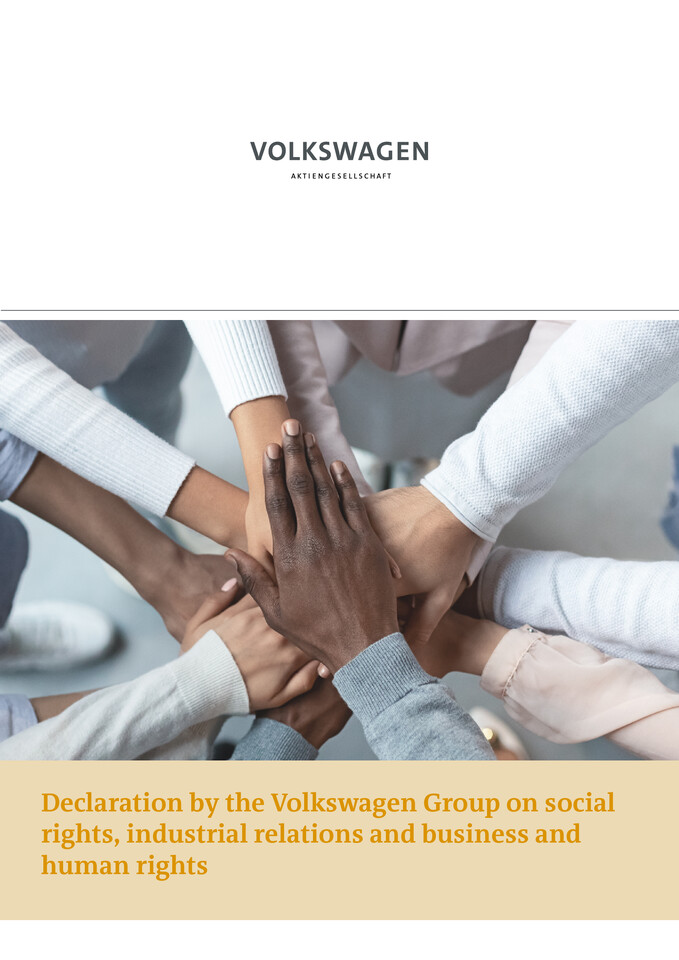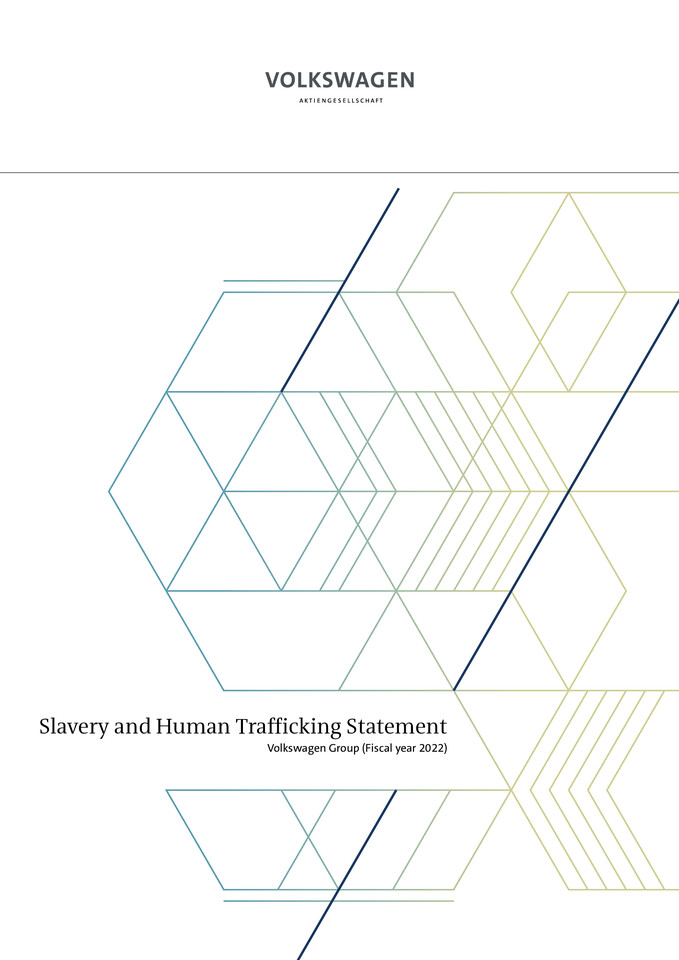The Declaration of Principles on Compliance with Our Human Rights and Environmental Due Diligence Obligations shows how we comply with our legal obligations within the framework of the LkSG. It also describes the priority human rights and environmental risks identified and sets out the expectations that Volkswagen Group has of its employees and suppliers in the supply chain.
Human Rights

Respect for human rights is a fundamental part of our corporate responsibility for the Volkswagen Group worldwide – in the Group, in the supply chain and in society.
These have also been laid down by the Executive Board and the European and Global Group Works Council in the joint Social Charter.
As the Volkswagen Group, we are committed to the principles of the International Charta of Human Rights and the core labour standards of the International Labour Organization. We align our business activities with the UN Guiding Principles on Business and Human Rights (UN Global Compact) to ensure sustainable and ethical business practices.
“Our stakeholders rightly expect us to be a pioneer in the field of human rights. With a team of more than 50 experts, we monitor compliance with due diligence obligations, identify potential for improvement and seek dialogue with partners and authorities. Safeguarding human rights is a task with no expiry date to which the Volkswagen Group and our team are committed.”

The Human Rights Officer
The Human Rights Officer


Our risk management system identifies and minimizes human rights and environmental risks at an early stage. It is integrated into all business processes and management is regularly informed of results.

We anchor preventive measures in our business processes to prevent or minimize risks. This includes, but is not limited to, training, appropriate procurement strategies and risk-based control measures.

If violations are identified, we take immediate measures to prevent, stop or minimize the extent. We develop and implement concrete plans to ensure that such injuries do not occur again.

Our complaints procedure makes it possible to draw attention to human rights and environmental risks. It ensures confidentiality and protection against discrimination for all whistleblowers.

“As a globally active company, the Volkswagen Group stands for individual freedom, fair working conditions, open world trade, economic development and peaceful coexistence. In our global business activities, we make sure that our values are lived and that our standards are met. We expect the same from our business partners.”

Protection of human rights at the Volkswagen Group
To protect human rights, the Volkswagen Group has established clear responsibilities throughout the Group within the framework of the "three-line model" as the regulatory framework for a holistic governance, risk and compliance management system for managing corporate risks.
The first line consists of the specialist departments that are responsible for day-to-day operations. They should identify and analyse risks at an early stage and manage them through appropriate control measures. Important areas for ensuring human rights and environmental due diligence obligations include procurement and human resources.
The second line controls and advises the first line. This also includes the area of compliance.
The third line is internal auditing as an objective audit body.
Our Human Rights Commissioner assumes the statutory duties in accordance with § 4 paragraph 3 of the LkSG. It ensures that first- and second-line risk management is appropriate and effective, and implements risk-based control measures.

The Grievance Mechanism
At the Volkswagen Group, we take information very seriously:
If you become aware of human rights- or environment-related risks and violations in our company or at our partners along the supply chain, you can report them to our Central Investigation Office at any time. This also applies to other reports that require immediate action by the Volkswagen Group. Our Investigation Office informs the responsible authorities that are dealing with the facts. If the information is confirmed, we take the necessary measures to minimise or end the violations and/or risks.












